7F2 Science
Section outline
-
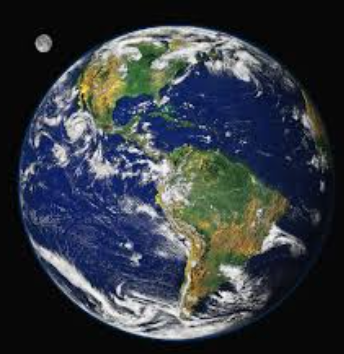
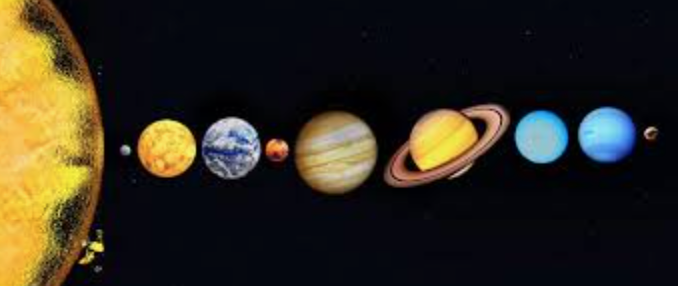
Kia ora 7F2 students. My name is Ms Brandauer (ibrandauer@mhjc.school.nz) and I am your science teacher for the year. I hope you have had a great holiday and are ready to explore science!
Below you will find this terms Achievement Objectives and the Learning Intention for the next few weeks. I have also outlined what will happen in each session of the week.
Big Idea: “Tūrangawaewae - Where do we stand?” Māori World View
Achievement Objectives
Nature of science
Investigating in science
-
Build on prior experiences, working together to share and examine their own and others’ knowledge.
-
Ask questions, find evidence, explore simple models, and carry out appropriate investigations to develop simple explanations.
Planet Earth and beyond
Astronomical systems
- Investigate the components of the solar system, developing an appreciation of the distances between them.
Learning Intentions: We are learning to (WALT)...
- know the order of the planets in our solar system
- understand the scale of items within the universe
- compare and contrast Earth with another planet in our solar system
- explore the star clusters of Matariki
Success Criteria: I can/have..
- know the name and order of the planets in our solar system
- compare Earth with another planet in our solar system
- describe similarities and differences between Earth and another planet in our solar system
- appreciate the vastness of the solar system
Activities:
Period 1: Waitangi day
Period 2:Get to know each other - Introduction from Mrs
Period 3: Make a cover page for your book. Brainstorm facts you know about the solar system.
- Google classroom activities
Vocab:
- orbit
- solar
- planet
- galaxy
- comet
- milky way
- helium
- debris
- hydrogen
- meteor
- asteroid
- terrestrial planets
- jovian planets
Homework:
-
-
-
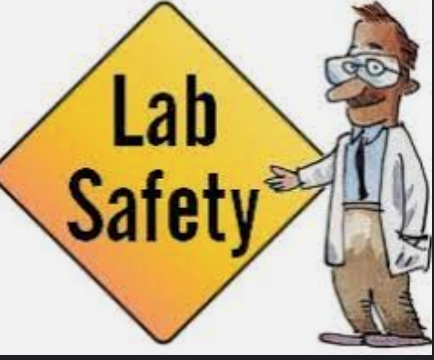
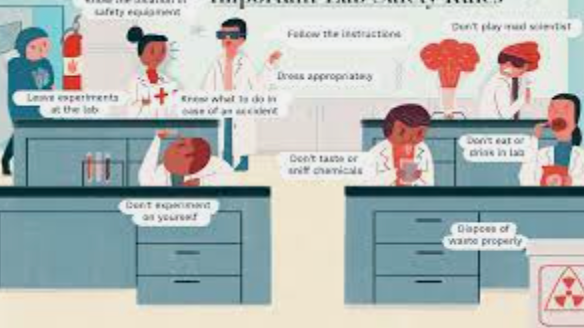
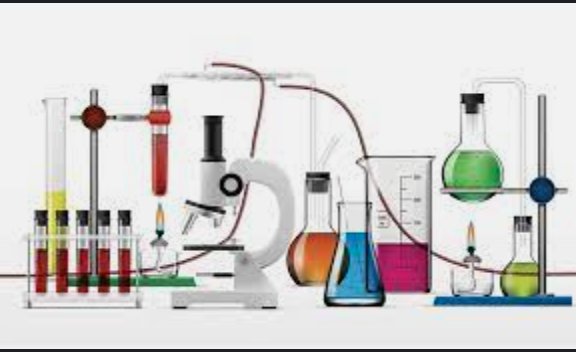
Kia ora 7F2 students. My name is Ms Brandauer (ibrandauer@mhjc.school.nz) and I am your science teacher for the year. I hope you have had a great holiday and are ready to explore science!
Below you will find this terms Achievement Objectives and the Learning Intention for the next few weeks. I have also outlined what will happen in each session of the week.
Big Idea: “Tūrangawaewae - Where do we stand?” Māori World View
Achievement Objectives
Nature of science
Investigating in science
-
Build on prior experiences, working together to share and examine their own and others’ knowledge.
-
Ask questions, find evidence, explore simple models, and carry out appropriate investigations to develop simple explanations.
Planet Earth and beyond
Astronomical systems
- Investigate the components of the solar system, developing an appreciation of the distances between them.
Learning Intentions: We are learning to (WALT)...
- Understand how to keep yourself safe in a laboratory
- Understand what the different laboratory equipments are used for
- know the order of the planets in our solar system
- understand the scale of items within the universe
- compare and contrast Earth with another planet in our solar system
- explore the star clusters of Matariki
Success Criteria: I can/have..
-
- Identify the different laboratory equipments
- Identify hazards in the laboratory
- know the name and order of the planets in our solar system
- compare Earth with another planet in our solar system
- describe similarities and differences between Earth and another planet in our solar system
- appreciate the vastness of the solar system
Activities:
Period 1: Introduction to lab safety. Go through the activities on the slides with Ms Bandauer.
Period 2: Introduction to lab equipment. Become familiar with different lab equipments and practise and identify them.
Period 3: Practical: Be able to use the different lab equipments.
- Google classroom activities
Vocab:
- Beaker
- Bunsen burner
- Tripod and gauze
- Measuring cylinder
- Stirring rod
- Thermometer
- Test tube
- Conical flask
- Pipette
Homework:
-
-


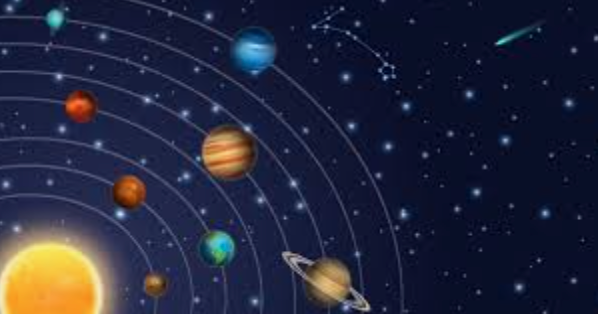
Kia ora 7F2 students. My name is Ms Brandauer (ibrandauer@mhjc.school.nz) and I am your science teacher for the year. I hope you have had a great holiday and are ready to explore science!
Below you will find this terms Achievement Objectives and the Learning Intention for the next few weeks. I have also outlined what will happen in each session of the week.
Big Idea: “Tūrangawaewae - Where do we stand?” Māori World View
Achievement Objectives
Nature of science
Investigating in science
-
Build on prior experiences, working together to share and examine their own and others’ knowledge.
-
Ask questions, find evidence, explore simple models, and carry out appropriate investigations to develop simple explanations.
Planet Earth and beyond
Astronomical systems
- Investigate the components of the solar system, developing an appreciation of the distances between them.
Learning Intentions: We are learning to (WALT)...
- know the order of the planets in our solar system
- understand the scale of items within the universe
- compare and contrast Earth with another planet in our solar system
- explore the star clusters of Matariki
Success Criteria: I can/have..
- know the name and order of the planets in our solar system
- compare Earth with another planet in our solar system
- describe similarities and differences between Earth and another planet in our solar system
- appreciate the vastness of the solar system
Activities:
Period 1: Video of the solar system. Fill out the worksheet labelling the planets and learn the order of the planet song.
Period 2: Student Led Conference
Period 3: Powerpoint presentation: Compare the inner and outer planets of the solar system.
- Google classroom activities
Vocab:
- orbit
- solar
- planet
- galaxy
- comet
- milky way
- helium
- debris
- hydrogen
- meteor
- asteroid
- terrestrial planets
- jovian planets
Homework:
-
-



Kia ora 7F2 students. My name is Ms Brandauer (ibrandauer@mhjc.school.nz) and I am your science teacher for the year. I hope you have had a great holiday and are ready to explore science!
Below you will find this terms Achievement Objectives and the Learning Intention for the next few weeks. I have also outlined what will happen in each session of the week.
Big Idea: “Tūrangawaewae - Where do we stand?” Māori World View
Achievement Objectives
Nature of science
Investigating in science
-
Build on prior experiences, working together to share and examine their own and others’ knowledge.
-
Ask questions, find evidence, explore simple models, and carry out appropriate investigations to develop simple explanations.
Planet Earth and beyond
Astronomical systems
- Investigate the components of the solar system, developing an appreciation of the distances between them.
Learning Intentions: We are learning to (WALT)...
- know the order of the planets in our solar system
- compare and contrast Earth with another planet in our solar system
- explore the star clusters of Matariki
- understand the scale of items within the universe
Success Criteria: I can/have..
- know the name and order of the planets in our solar system
- compare Earth with another planet in our solar system
- describe similarities and differences between Earth and another planet in our solar system
- calculate the distances of the planets from the sun.
Activities:
Period 1: Distances of the solar system - Powerpoint presentation
Period 2: Calculation of the distances of the solar system. Answer questions from the slide.
Period 3: Practical: Measure out the solar system
- Google classroom activities
Vocab:
- orbit
- solar
- planet
- galaxy
- comet
- milky way
- helium
- debris
- hydrogen
- meteor
- asteroid
- terrestrial planets
- jovian planets
Homework:
-
-
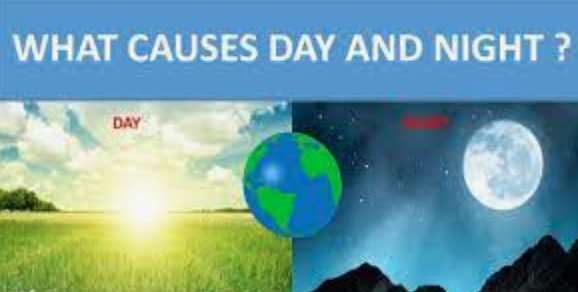
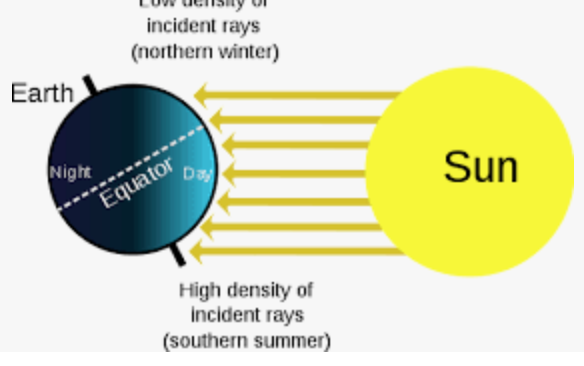
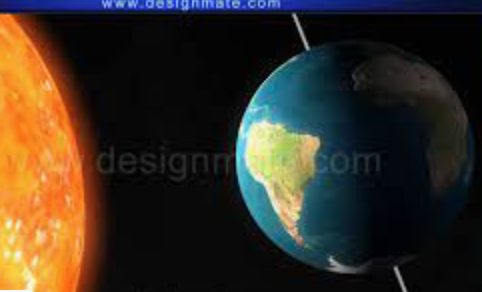
Kia ora 7F2 students. Below you will find this terms Achievement Objectives and the Learning Intention for the next few weeks. I have also outlined what will happen in each session of the week.
Big Idea: “Tūrangawaewae - Where do we stand?” Māori World View
Achievement Objectives
Nature of science
Investigating in science
-
Build on prior experiences, working together to share and examine their own and others’ knowledge.
-
Ask questions, find evidence, explore simple models, and carry out appropriate investigations to develop simple explanations.
Planet Earth and beyond
FOCUS / ARONGA learning intentions:
- We are FOCUSING to discuss our understanding of the time cycles of Earth.
- We are FOCUSING to describe the phases of the moon
SUCCESS CRITERIA:
- Explain how the tilt of the Earth causes day and night
- Describe how the tilt of the Earth causes the seasons.
- Understand that poles having very long days and nights.
- Know the difference between Northern and Southern Hemisphere in seasons
Lesson 1:
Youtube clip of day and night
Slide show understanding how day and night are formed
Worksheet
Lesson 2:
CAMP
Lesson 3:
Formation of the four seasons
Students act out "How are seasons formed"
Bbc bitesize
-
-



Kia ora 7F2 students. Below you will find this terms Achievement Objectives and the Learning Intention for the next few weeks. I have also outlined what will happen in each session of the week.
Big Idea: “Tūrangawaewae - Where do we stand?” Māori World View
Achievement Objectives
Nature of science
Investigating in science
-
Build on prior experiences, working together to share and examine their own and others’ knowledge.
-
Ask questions, find evidence, explore simple models, and carry out appropriate investigations to develop simple explanations.
Planet Earth and beyond
FOCUS / ARONGA learning intentions:
- We are FOCUSING to discuss our understanding of the time cycles of Earth.
- We are FOCUSING to describe the phases of the moon
SUCCESS CRITERIA:
- Explain how the tilt of the Earth causes day and night
- Describe how the tilt of the Earth causes the seasons.
- Understand that poles having very long days and nights.
- Know the difference between Northern and Southern Hemisphere in seasons
Lesson 1:
Finish the worksheets from last week.
Lesson 2:
Brainpop - seasons. Watch the movie, work through the challenge, and fill in the vocabulary list. If you are finish chose any other part on brainpop and work through the task.
Lesson 3:
Literacy in science. Guided exercise: Write a passage about life in winter in Austria. Explain why there is winter in Austria and summer in New Zealand.
-
-
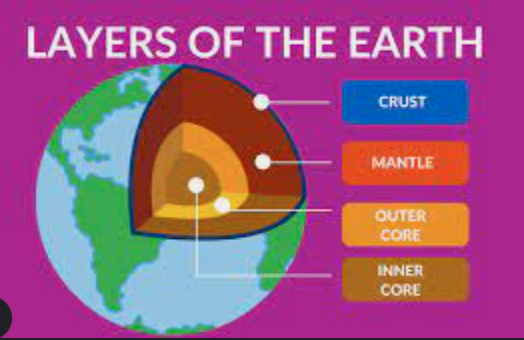
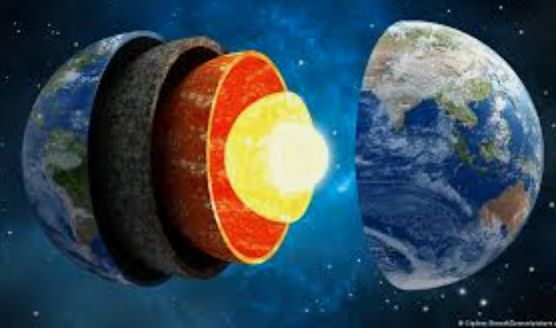
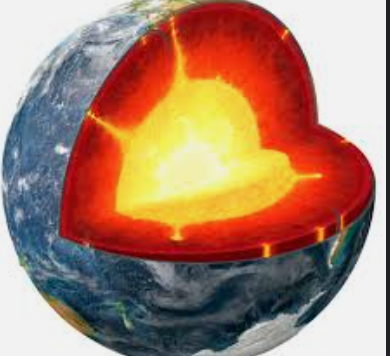
Kia ora 7F2 students. Below you will find this terms Achievement Objectives and the Learning Intention for the next few weeks. I have also outlined what will happen in each session of the week.
Big Idea: “Tūrangawaewae - Where do we stand?” Māori World View
Achievement Objectives
Nature of science
Investigating in science
-
Build on prior experiences, working together to share and examine their own and others’ knowledge.
-
Ask questions, find evidence, explore simple models, and carry out appropriate investigations to develop simple explanations.
Planet Earth and beyond
Earth systems
- Develop an understanding that water, air, rocks and soil, and life forms make up our planet and recognise that these are also Earth’s resources.
FOCUS / ARONGA learning intentions:
- We are FOCUSING on the difference between the Earth and other planets.
- We are FOCUSING to discuss our understanding of the time cycles of Earth.
- We are FOCUSING to identifying the layers of the Earth.
SUCCESS CRITERIA
- Explain how the tilt of the Earth causes day and night
- Describe how the tilt of the Earth causes the seasons.
- Understand that poles having very long days and nights.
- Know the difference between Northern and Southern Hemisphere in seasons
- Describe the four layers of the Earth
Lesson 1: You tube clip 'Layers of the Earth'. Powerpoint presentation explaining the four layers of the Earth.
Lesson 2: Draw the layers of the Earth in your book. Give it a title and label the different layers.
Lesson 3: Layers of the Earth sorting activity. Work through brainpop.
-
-



Kia ora 7F2 students. Below you will find this terms Achievement Objectives and the Learning Intention for the next few weeks. I have also outlined what will happen in each session of the week.
Big Idea: “Tūrangawaewae - Where do we stand?” Māori World View
Achievement Objectives
Nature of science
Investigating in science
-
Build on prior experiences, working together to share and examine their own and others’ knowledge.
-
Ask questions, find evidence, explore simple models, and carry out appropriate investigations to develop simple explanations.
Planet Earth and beyond
Earth systems
- Develop an understanding that water, air, rocks and soil, and life forms make up our planet and recognise that these are also Earth’s resources.
FOCUS / ARONGA learning intentions:
- We are FOCUSING on the difference between the Earth and other planets.
- We are FOCUSING to discuss our understanding of the time cycles of Earth.
- We are FOCUSING to identifying the layers of the Earth.
SUCCESS CRITERIA
- Explain how the tilt of the Earth causes day and night
- Describe how the tilt of the Earth causes the seasons.
- Understand that poles having very long days and nights.
- Know the difference between Northern and Southern Hemisphere in seasons
- Describe the four layers of the Earth
Lesson 1: Teacher only day
Lesson 2: Quiz on Layers of the Earth and Kahoot
Lesson 3: Practical - Create your own layers of the Earth
-
-

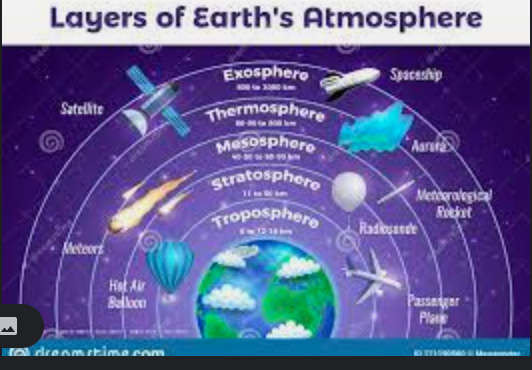
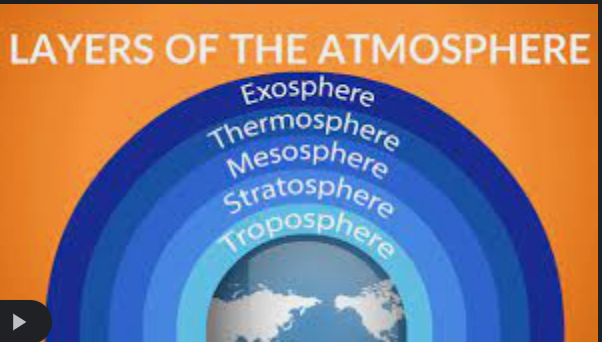 a ora 7F2
a ora 7F2 Kia ora 7F2 students. Below you will find this terms Achievement Objectives and the Learning Intention for the next few weeks. I have also outlined what will happen in each session of the week.
Big Idea: “Tūrangawaewae - Where do we stand?” Māori World View
Achievement Objectives
Nature of science
Investigating in science
-
Build on prior experiences, working together to share and examine their own and others’ knowledge.
-
Ask questions, find evidence, explore simple models, and carry out appropriate investigations to develop simple explanations.
Planet Earth and beyond
Earth systems
- Develop an understanding that water, air, rocks and soil, and life forms make up our planet and recognise that these are also Earth’s resources.
FOCUS / ARONGA learning intentions:
- We are FOCUSING on the difference between the Earth and other planets.
- We are FOCUSING to discuss our understanding of the time cycles of Earth.
- We are FOCUSING to describe identifying the layers of the Earth.
- We are FOCUSING on the different layers of the atmosphere.
SUCCESS CRITERIA
- Explain how the tilt of the Earth causes day and night
- Describe how the tilt of the Earth causes the seasons.
- Understand that poles having very long days and nights.
- Know the difference between Northern and Southern Hemisphere in seasons
- Describe the four layers of the Earth
- Name the different layers of the atmosphere
Lesson 1: Powerpoint presentation Layers of the atmosphere and worksheet - match the definition
Lesson 2: Practical layers of the atmosphere
Lesson 3: Write up of the investigation
-
-
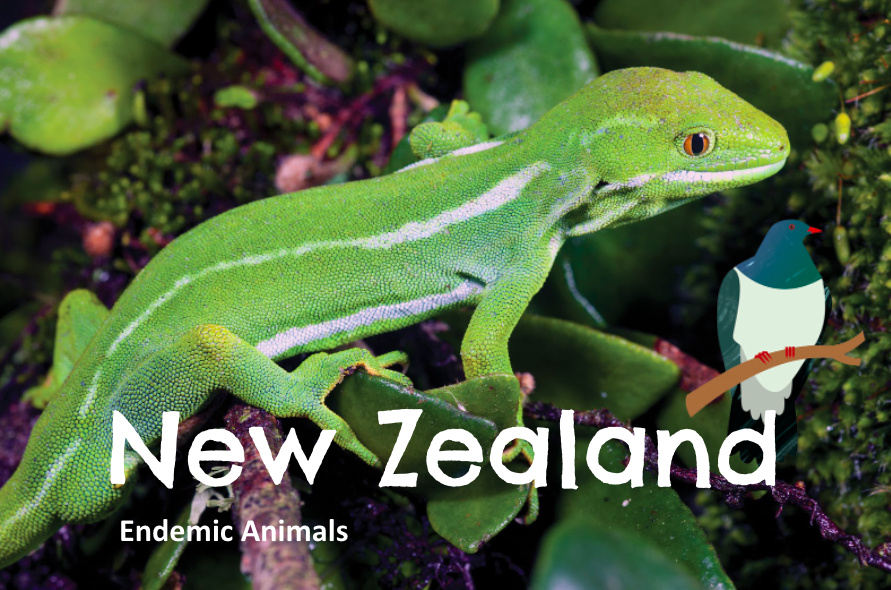
Researching New Zealand Endemic Species
Note: Mrs Williamson is away this week
Learning Outcomes
This week we are learning
- About some of New Zealand's endemic species
Success Criteria
This week we have
- Researched an endemic species and answered specific questions
Activities- Create a one-page Google Slide fact sheet
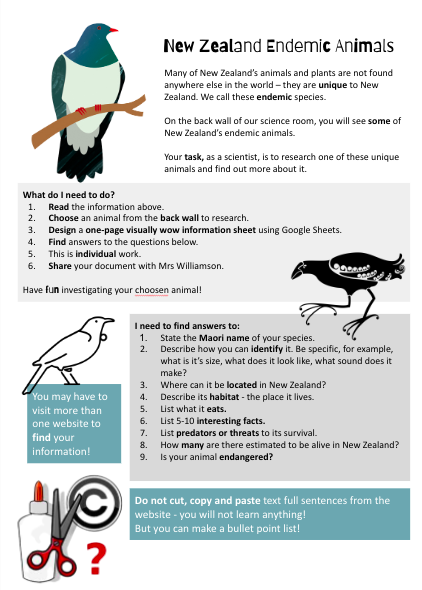
-
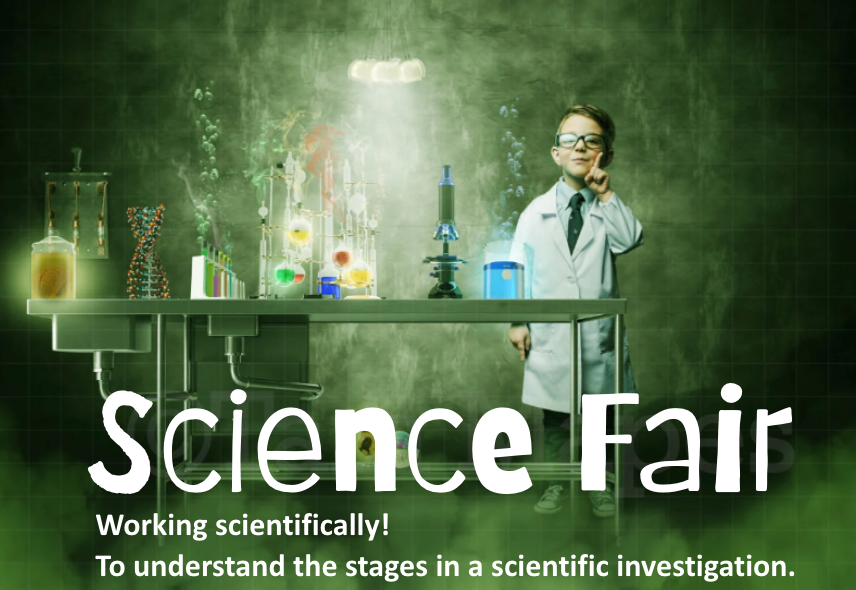
Science Fair - Investigating Scientifically
Learning Intentions - for this term:
- We are EXPLORING how to work scientifically - to understand the stages in a scientific investigation.
- We are EXPLORING how scientists ask questions about the world around them that lead to investigations, and that open-mindedness is important as there can be more than one explanation.
- We are EXPLORING how we can extend our experiences and personal explanations of the natural world through exploration, play, asking questions, and discussing simple models.
- We are EXPLORING how to build our language and develop our understanding of the many ways the natural world can be represented.
- We are EXPLORING how to act on issues and questions that link science learning to your daily lives.
Success Criteria - for this week in class:- We had a brief introduction to the Science Fair and what it means to investigate scientifically.
- We learnt that Focus Friday, should I choose to attend, is where I can develop my own Science Fair project and enter into the annual competition. Mrs Williamson will work through this with us every Friday.
- We have been introduced to the Science Rules that we must adhere to when performing Science Experiments and Investigations.
Activities - for this week in class:- Watched Science Safety Rules Video
- Signed Science Class Rules Contract
- Set up our learning page in our book
- Listed different types of science
- Answered questions to get us thinking about science
- Carried out how to make a simple sandwich to learn about writing clear instructions
- Science investigations: Lava lamps
- Science behind the experiment link: https://www.youtube.com/watch?time_continue=2&v=uigGqYeSXvk&feature=emb_logo
-

Learning Intentions - for this term:
- See the beginning of term week of 9 May
Success criteria - for this week in class:- I understand the difference between a science activity and science investigation.
- I understand that I must work safety when conducting science investigations.
- I am learning how to follow instructions for investigations.
- I am learning the science behind investigations - lava lamp.
- I am learning how to draw scientifically.
- I am learning to work in the classroom as a team member.
Activities - for this week in class:
- Youtube watching and note-taking: The science behind the Lava Lamp experiment link: https://www.youtube.com/watch?time_continue=2&v=uigGqYeSXvk&feature=emb_logo
- Drawing: How to draw science apparatus
- Keyword list: Started developing a classroom key word list
- Explored: In class we explored the Scientific Method gaining an overview of the steps; how to write an interesting question; how to conduct research using the internet without 'copying and pasting' to identify key information that we understand; and defining a hypothesis (what if statements)
-

Learning Intentions - for this term:
- See the beginning of term week of 9 May
Success criteria for this week in class:
- I can work scientifically in class when carrying out science investigations.
- I am learning the science behind our practical investigations.
- I am learning the steps behind the scientific method.
- I am learning to record data into a table and how to analyse data - mean and percentages.
- I am learning how to take my answers and writing from an achieved level to above.
- I am learning how to take tidy science notes.
Activities - for this week in class:- Science investigation: Dropping on a coin
- Understanding: The steps of an investigation for example - repeating trials - reviewing the results, counting, average, and writing the data into a table, writing up an experiment, drawing the experimental set-up
- Exploring: How the hypothesis links to the conclusion
- Reflection: How we are going as a team, are our books tidy
- Science investigation: Tasting chocolate
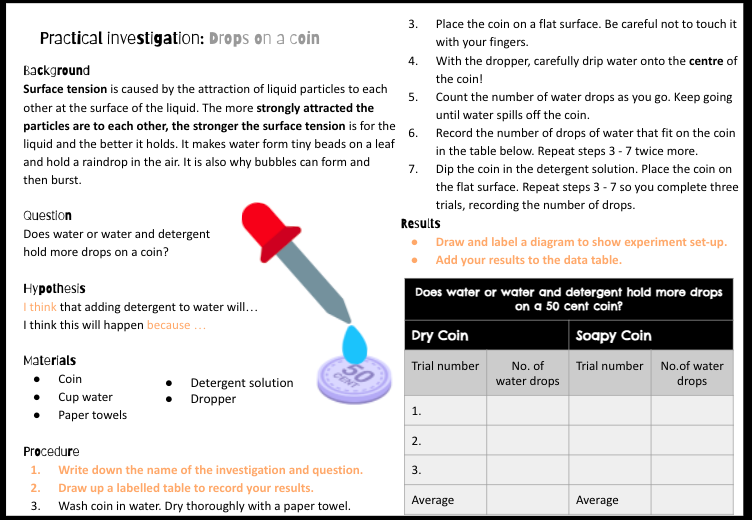
-

This week we are returning to home learning for one day a week!
Learning Intentions - for this term:
- See the beginning of term week of 9 May
Success criteria for this week in class:My home learning success criteria
- I am able to complete my science tasks at home and continue my Science learning. I know that I need to check in with Mission Heights Online to find out what I need to do if I missed instructions in class or to contact one of my friends to find out if I get stuck.
Class learning success criteria- I can identify how errors may occur in Science Investigations and how I might eliminate them
- I understand the term fair test and why this is carried out
- I am further extending my knowledge and experience on carry out investigations.
Activities - for this week in class:
My home learning activity:- This week I am to carry on working on my Endemic Species...... I need to check that I answered all the questions (I will check Google Classroom); I am confident that I have done enough research to understand my species and my page is full of information that answers the questions; I am learning to write my answers in my own words; I have presented in all on one page and I have you checked my punctuation and use of capital letters. See examples below.
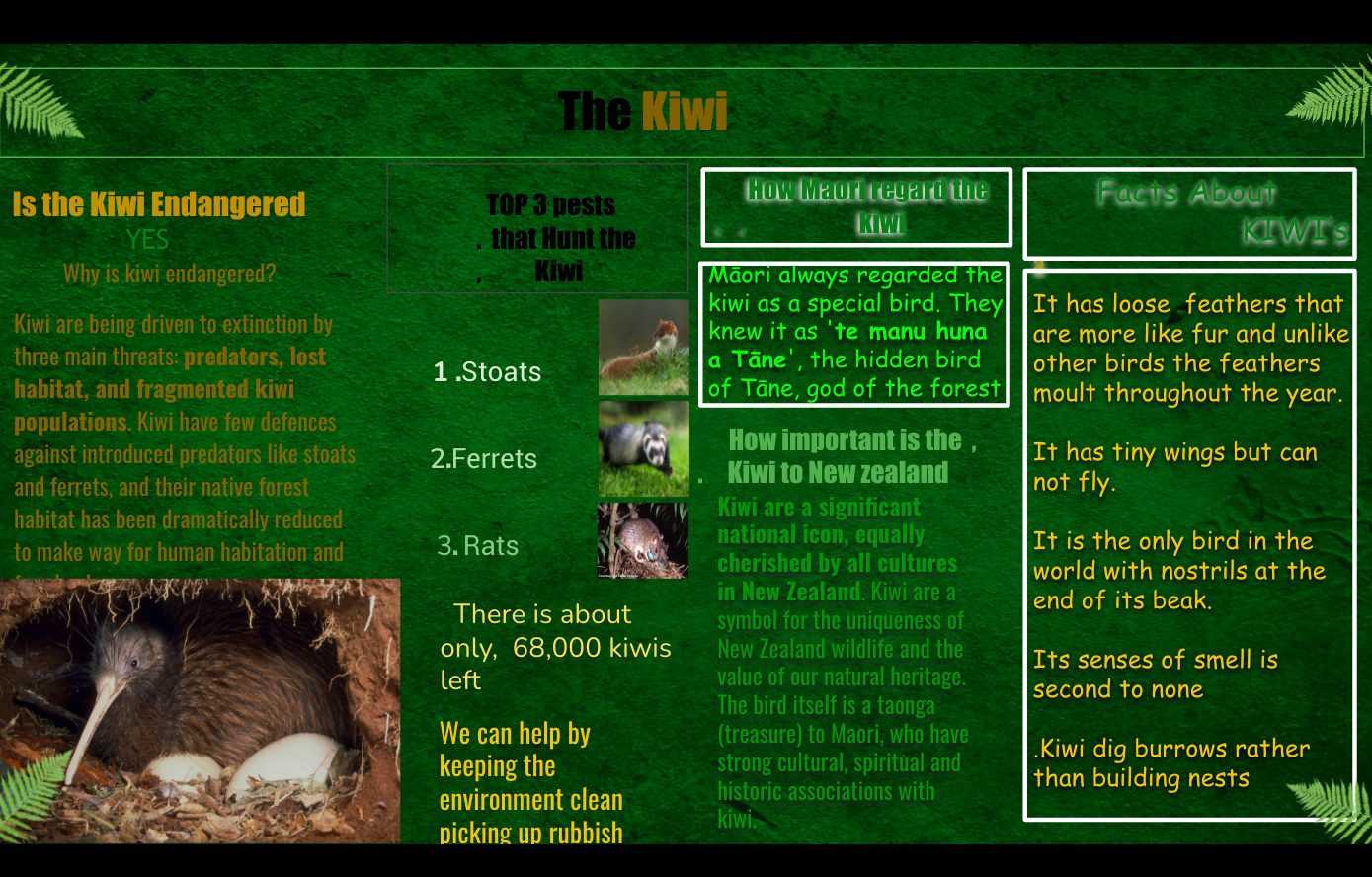
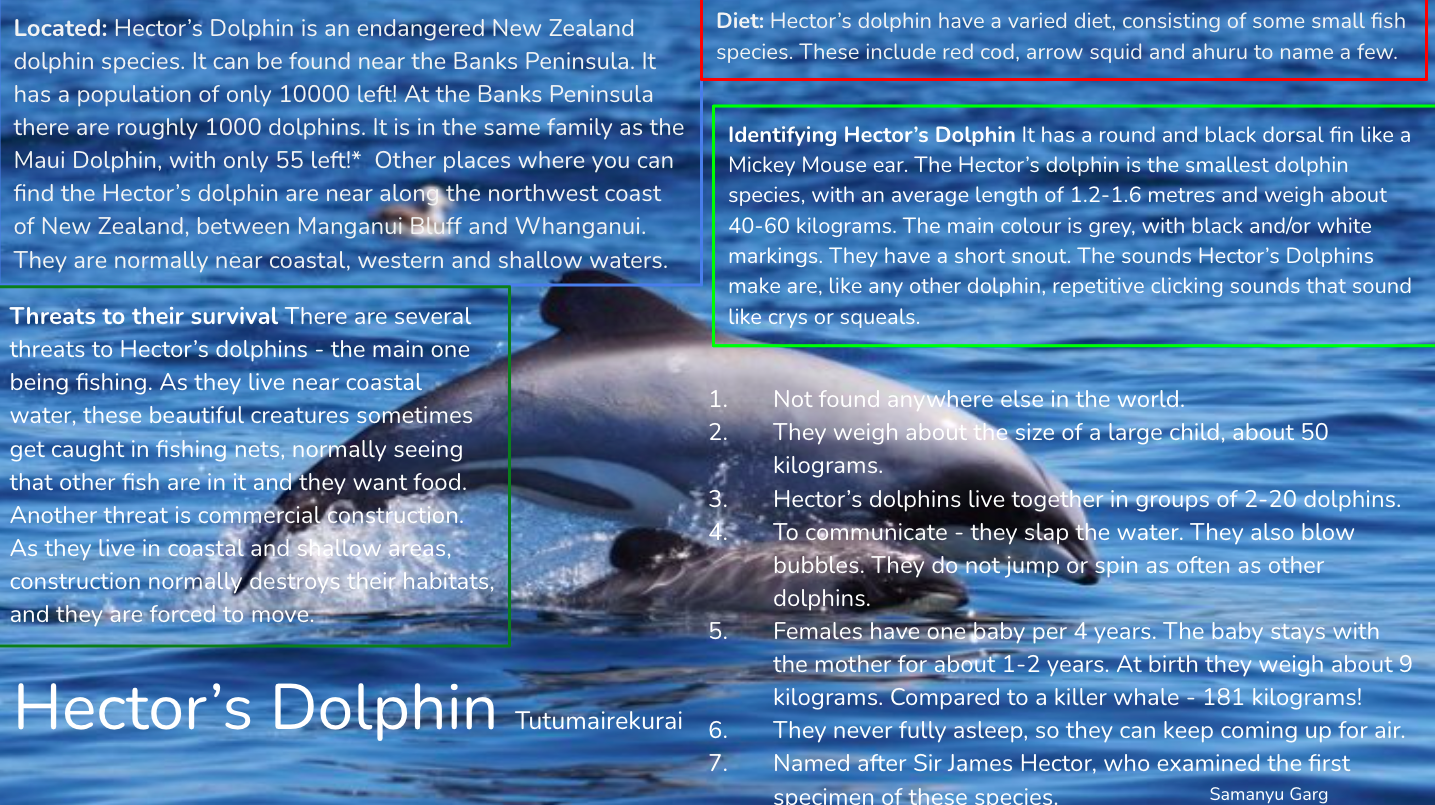
-

This week we had a short week - Monday Queens Birthday weekend, Tuesday Teacher Only Day
Learning Intentions - for this term:
- See the beginning of term week of 9 May
Success criteria for this week in class:
- I am learning how to set up an experiment to test and trial.
- I am learning how recognise the three different variables - controlled, independent, dependent.
- I am learning how to research and visit multiple websites to extend my learning.
- I am learning how we link information together and make connections e.g chemistry of the egg shell dissolving and the rubber egg
- I am learning how to make and record observations from an experiment.
- I am learning behind every experiment, no matter how simple. there is a lot of science happening!!
Activities in class- Scientific investigation: Egg-citing Bounce Off Experiment - reading, following instructions and setting up an experiment.
- Answering specific questions by researching using Google to take my understanding further.
- Label and draw the experimental set up and follow-up observations.
- Participating in team work, team help and class discussion
- See the beginning of term week of 9 May
-

Learning Intentions - for this term:- See the beginning of term week of 9 May
Success criteria for this week in class:
- I am learning about how to observe what happens in an experiment.
- I am learning to collect data and record it in a table.
- I am learning how to write the experiment list and method.
- I am learning how to graph my data.
Activities in class:- Scientific investigation: Egg-citing Bounce Off Experiment - this week we are collecting data and graphing.
- Handouts for drawing tables and graphing.
- Participating in team work, team help and class discussion
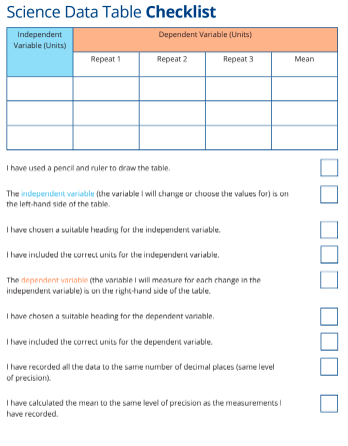
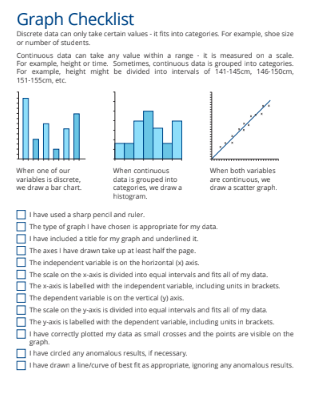
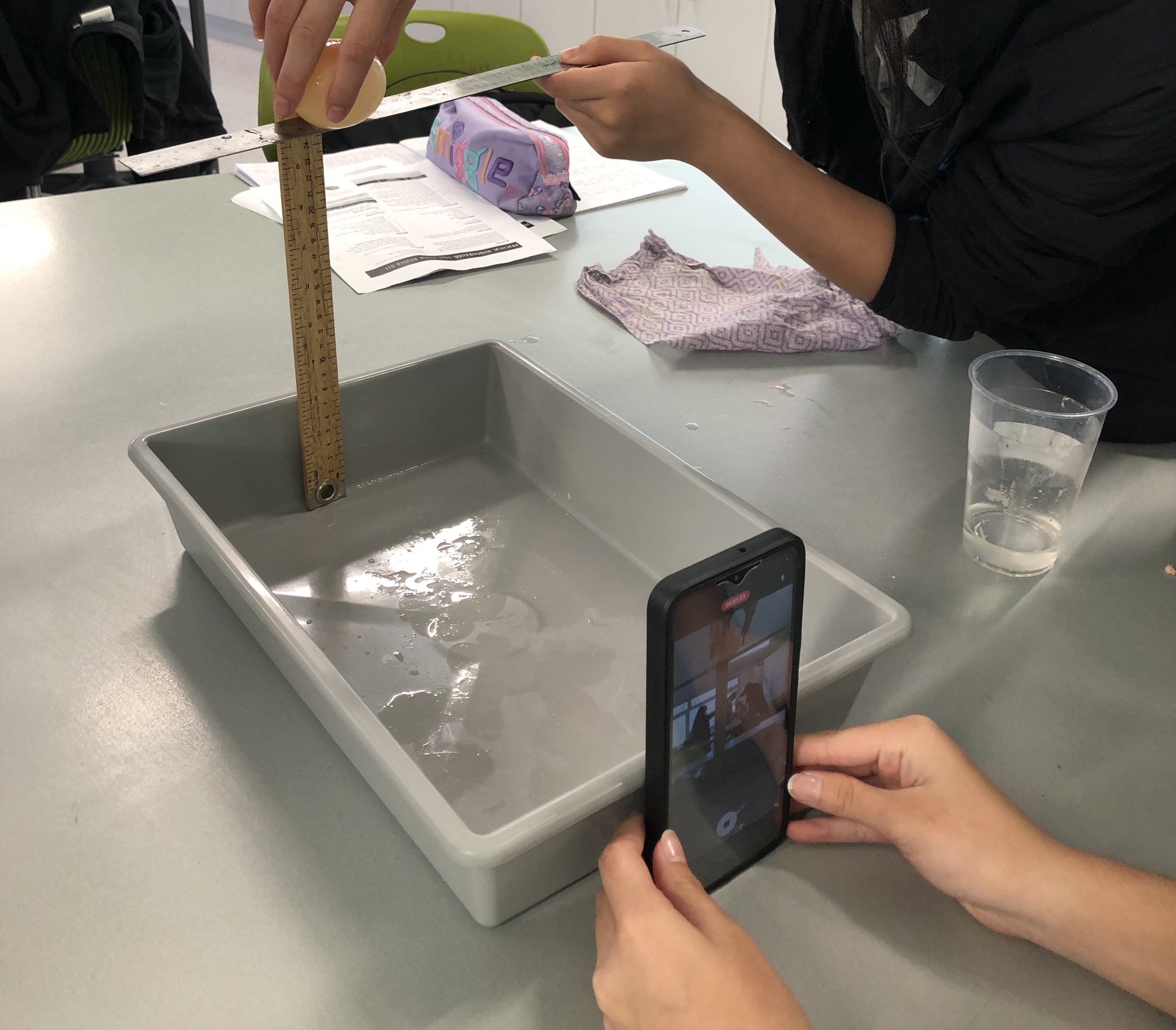
- See the beginning of term week of 9 May
-

Learning intentions:
- We are REFLECTING as we progress in science to assess our understanding at various check points.
- We are REFLECTING on our understanding prior to commencing our science investigation assessment.
Success criteria:
- I understand how to write a review based on the results of a scientific investigation.
- I understand how the conclusion links to the hypothesis and how to write a few sentences to say of my conclusion was correct or incorrect.
- I understand the order of steps in a scientific investigation.
- I can find the information in my school notes to help me in my planning.
- I can work through the process of a scientific investigation and the practical experiment.
Activities:
- Writing notes on how to write a review and conclusion.
- Finish of graph work from the egg experiment.
- Ensuring my book notes are in order to help me with my practice investigation.
- Science investigation: Heat in a cup
-

PLAN & DO Learning intentions:
- We are PLANNING.to demonstrate our understanding by carrying out a scientific investigation.
- We are PLANNING to publish our work using Google Docs.
- We are PLANNING to write a hypothesis and solve using data collated from our practical investigation.
- We are PLANNING to use numeracy and literacy skills in our report.
Success criteria:- I can set up an experiment and collect data
- I can record the data into a data table
- I can calculate the mean
- I can transfer the data to a graph
- I can draw a graph
- I can draw some conclusions from my graph
- I can think of ways to improve an investigation
- I am working my way through my science assessment with a partner and I am using my checklist to help me
Activities in class:- Science Investigation: Heat transfer through different materials
- Assessment task sheet: Completing the steps for a science investigation with a buddy - collecting data into tables, drawing a graph and writing a review, etc.
-
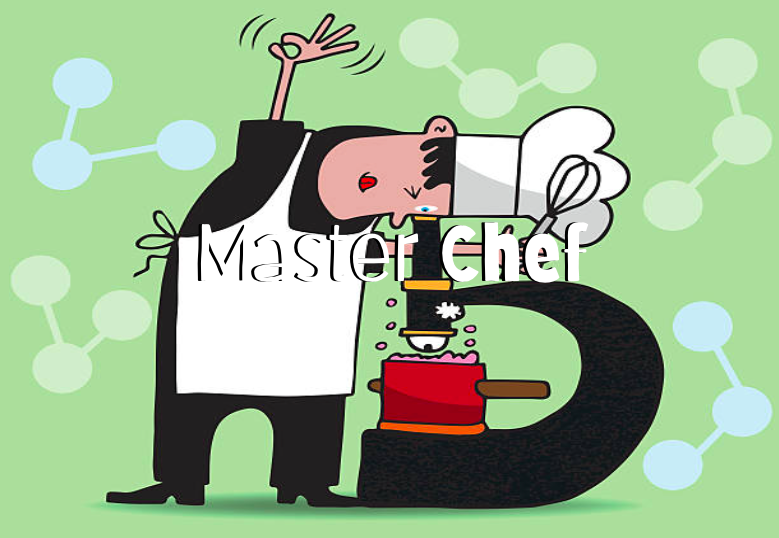
Masterchef
Success criteriaThis week Mrs Williamson is on COVID leave, so our focus is on increasing our science knowledge through a quiz and other activities to show we can work independently.
Activities in class- Our new context is "Masterchef" it is exciting - TASK 1; please can you complete your WOW one-page design for this term's work in your book. See Mission Heights online for a quick look! We will continue this when I return.
- Then TASK 2 is to complete the Quiz in Google Classroom. The questions are 'everyday' things you need to know (please don't copy from your friend) as you won't learn! Some answers will be quick to do - others questions will require more detailed explanations. If you don't know the answers, Google Search them.
- If you have finished this, TASK 3 is to complete the Education Perfect Task on Heat.
- If you have finished all the above, TASK 4 is to create your Science Quiz; you can use my template to guide you or create your own.
-

Masterchef
Mrs Williamson is away for the week.
Success criteria- You are embarking on an adventure of self-learning this week. You will earn by yourself by gathering information, processing it, and retaining it without the assistance of someone else (your teacher). Are you up for the challenge?
Activities in class- All the activities have been placed on Google Classroom.
- Go to BrainPOP and log in.
- Watch the water video and complete ALL the activities. It should take you all week to complete this task. You may need to stop and start the video to take notes.
- The only way to retain (remember) New information is to write it down. You need to take notes and design an A3 page showing your learning. Use a pencil and colouring-in pencils.
- This is individual work.
- Your challenge is to make this colour and informative (lots of information) as possible.
- Remember, tidy work.
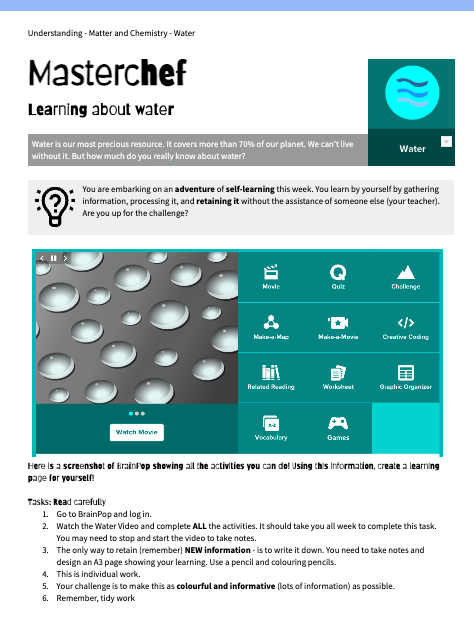
-

Masterchef
Mrs Williamson is back this week.
Success criteria (I can..)
- Describe what is matter
- Recall the three states of matter
- Describe two key features for each solid, liquid and gas
- Describe how a solid, liquid & gas can change shape
- Describe whether oobleck is solid or a liquid
- Describe whether tomato sauce is a solid or a liquid
- Name what these substances are called
Activities in class
- This week we started our context formally with Mrs Williamson. We were introduced to the Masterchef and what we will be covering over the next week or so.
- We started to learn about matter,
- We are learning to read information and highlight the key points
- We also marked our assessments together and individually in class.
-

Masterchef
Success criteria (I can..)
- Describe what is matter
- Recall the three states of matter
- Describe two key features for each solid, liquid and gas
- Describe how a solid, liquid & gas can change shape
- Describe whether oobleck is solid or a liquid
- Describe whether tomato sauce is a solid or a liquid
- Name what these substances are called
Activities in class
- Class discussion and individual activity on states of matter
- Brain Pop - watching the matter movie and learning to take notes
- Quiz - testing our knowledge
- Practical investigations - understanding the states of matter
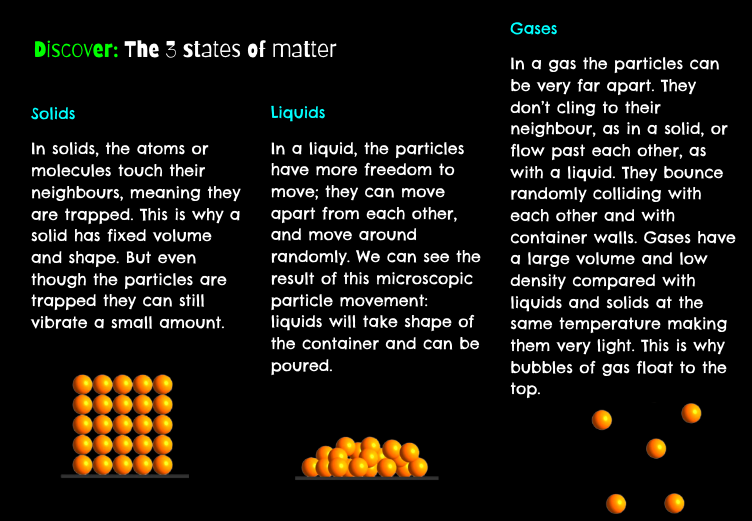
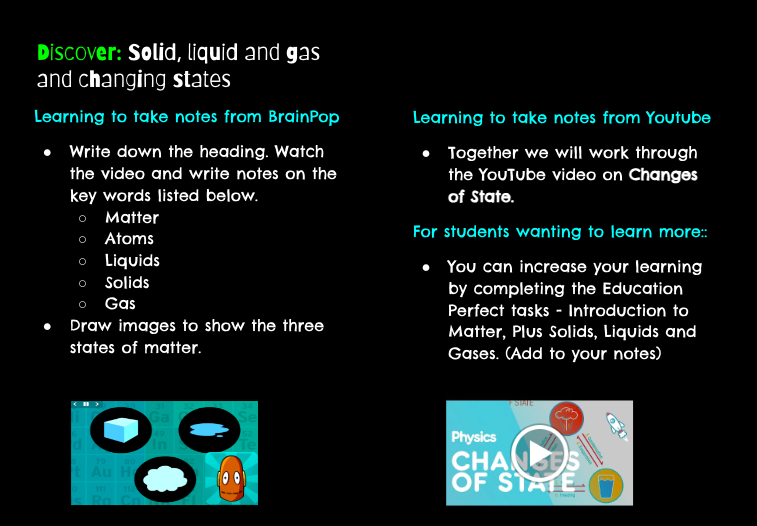
-

Learning Intentions - for this term:
- See the beginning of term week of 9 May
Success criteria for this week in class:
- I understand the processes of boiling, freezing, evaporation and condensation (advanced sublimation and deposition)
Activities - for this week in class:- Practical investigation 1: Carried out an experiment in small groups to understand the processes involved in the changes of state e.g. Boiling, freezing, evaporation and condensation
- Practical investigation 2: When adding substances to water e.g. sugar and salt does it speed up or slow down the melting of an ice cube?
- Practical investigation 3: Oobleck
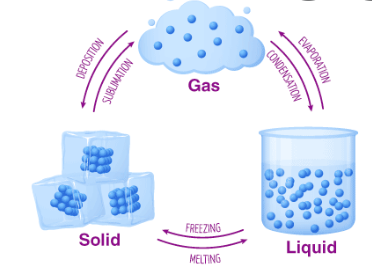
-

PLAN & DO / WHAKAMAHI learning intentions:
- We are PLANNING... on applying our knowledge through Education Perfect Q&A and long answered questions to show our understanding of the states of matter and the processes involved in the changes of state.
Success criteria- This week I have been learning how to prepare for an online and written test on the content I have been learning so far in my science class. I have been checking in on my learning and going through Education Perfect tasks. My goal has been to take notes on anything that is new to me, however most of this should be straight revision. This is a self-learning task, so the more I put into it the more I get out of it!
- I have had two lessons to do this and homework time.
Activities- Practical activity: Ice cream making
- Self learning activities on Education Prefect and for homework
-

Learning intentions
- See week prior.
Success criteria- Learning to work on our second assessment - respecting others and their needs
- Following and reading instructions
- Applying our thinking and learning
Activities- Assessment task: Education Perfect - States of Matter
- Assessment task: Education Perfect - Changes of phases
- Assessment task: Masterchef activity
- Assessment grade: Feedback on marking and how to move forward
-

This week we are continuing our learning journey in Masterchef and looking into mixtures.
Success criteria
- Describe what an example of a pure substance is
- Describe what an example of an impure substance is
- Explain what a mixture is
- Explain what a pure substance is
Activities- Practical experiment: Separating mixtures
- Education Perfect: Tasks
-
Continuation of the week prior
-
This week is short week - Monday Queens Mourning Day, Attitude presentations - spent the week finishing off work
-
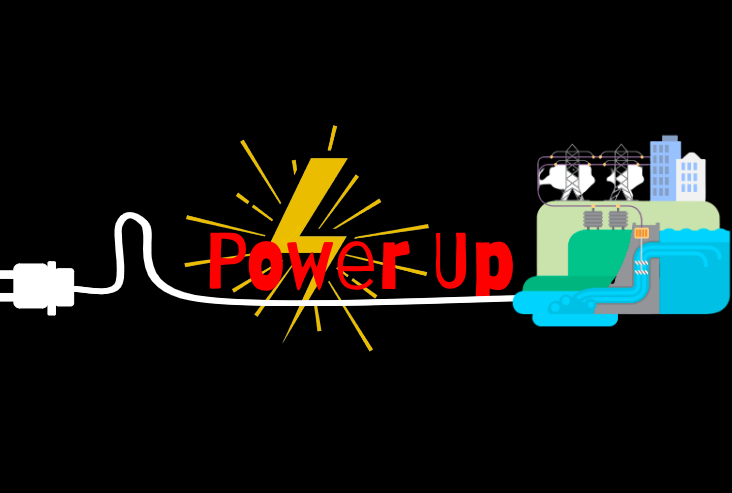
This term, we are learning about electricity:- What is electricity, and how is it created?
- We are starting at the beginning with dams and water, then learning about hydro dams in New Zealand, and onto renewable and non-renewable
sources, then the role of Transpower, extending to how electricity comes to our homes and schools, understanding what is electrical energy - We are ending our learning by dissecting common home appliances and working out how they work
.
Learning intentions:
- We are FOCUSING our learning on developing an understanding of everyday examples of physical phenomena, such as electricity.
We are identifying how electricity is created in New Zealand, starting with describing and identifying different dams and ending with dissecting an electrical appliance.
Success criteria:
- I can describe what a dam is and how they are built and why they are built
- I can list different purposes for a dam
- I can state important facts about dams in New Zealand
- I can link the dam to how electricity is created
Activities:
- Working together as a class to understand what a dam is and the types of dams in New Zealand
- Using the internet to develop researching skills
- Working with an online document to transfer the data
- Knowledge quizzes to reinforce our learning
- The working document can be found on Google Classroom
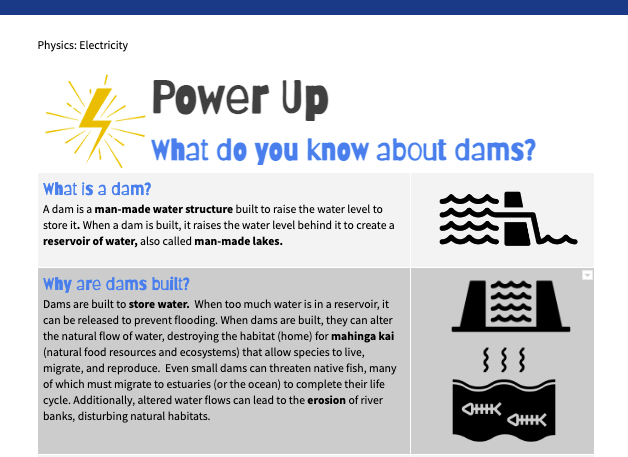
-

This is a short week - Monday is a public holiday - Labour Day
- As per the previous week.
-

Success criteria:
- I can describe the difference between a water dam and a hydro dam
- I have an understanding that getting electricity to our homes involves 4 key stages
- I can describe each key stage - generation, transmission, distribution and retail
- I am learning how different companies play a different roles in our getting electricity to our homes
Activities:
- Working together as a class to understand the role of hydro dams in powering our homes, schools and businesses with electricity
- Using the internet to develop research skills and to search for key ideas and images
- Working with an online document to transfer data onto and snapshots of learning
- Knowledge quizzes, mindmaps and drawings to reinforce our class learning
-

Learning intentions- Explore everyday examples of physical phenomena, such as movement, forces, electricity and magnetism, light, sound, waves and heat.
- Seek and describe simple patterns in physical phenomena.
Success criteria- Define renewable and non-renewable energy sources
- List examples of renewable and non-renewable energy sources
- Describe the three key steps in the water cycle and link this back to hydro energy power
Activities in class- Discussion on how hydro energy relies on water
- Introduce water cycle
- Compare coal to water in generating electrical energy
- Individual and peer work using a whiteboard and markers to map out the water cycle
- Research advantages and disadvantages of using coal to generate electricity
-

Learning intentions
- Explore everyday examples of physical phenomena, such as movement, forces, electricity and magnetism, light, sound, waves and heat.
- Seek and describe simple patterns in physical phenomena.
Success criteria- Describe how electricity is delivered to our home from the street
- Understand the wiring colours and layout of a standard three-point plug
Activities in class- Get connected - take snapshots of the pillar box, metre box and switchboard in your home
- Practical activity - become familiar with sockets and electrical plugs and wiring in NZ
Homework
- Refer to the image below
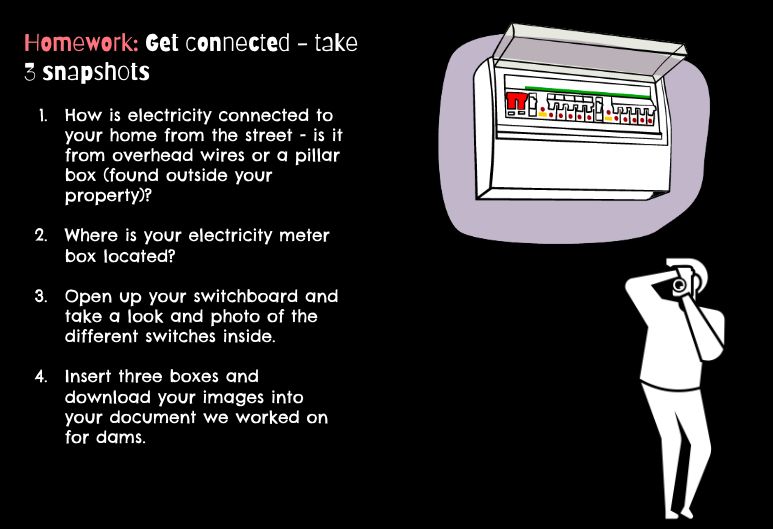
-

Learning intentions:
- We are PLANNING... how to design and construct a diagram to show how electricity is created in New Zealand - focusing on hydroelectrical power.
- we are PLANNING... a field trip to apply our class knowledge and to practise collecting and sharing data.
- We are PLANNING... the dissection of a common home electrical appliance collaborating in teams to work through how it works.
Success criteria- Understand some of the workings of an electrical appliance and how the inside works
Activity- Dissecting and electrical appliance
-
Finishing off term context.








